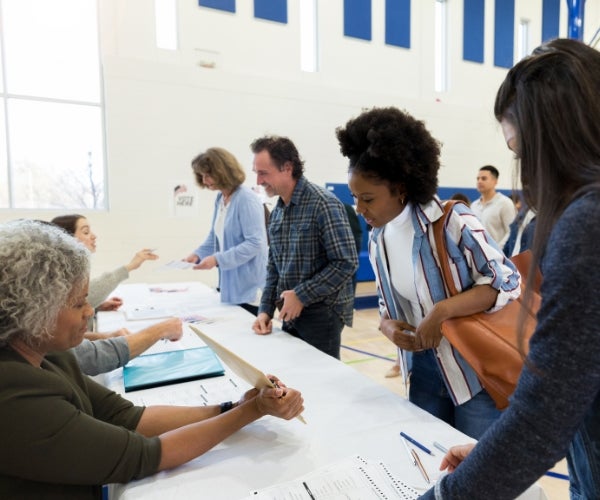While Houston is the fourth-largest city in the United States, voter turnout is below the national average. Thanks to a $4.5 million grant from Houston Endowment, Rice University has launched the Voter Engagement Project, a nonpartisan, two-year pilot program to identify neighborhoods across the region with historically low voter participation and work with those communities to develop and test interventions that move the needle on civic engagement in Greater Houston.
Melissa Marschall, a professor of political science at Rice, will lead a team of researchers with support from Redstone Strategy Group, which helps philanthropies, nonprofits and governments solve the world’s most urgent social issues.
"There are few more pressing issues today than voter engagement and participation,” said Rachel Kimbro, dean of Rice’s School of Social Sciences. “I am thrilled that we will be tackling this issue that is so crucial for the future of Houston and the state of Texas, and grateful to Houston Endowment for supporting this work."
Informed by data from MappingTheVote.com, researchers identified five communities where high percentages of residents were not turning out for local, statewide or federal elections: Golfcrest, Gulfton, Porter/New Caney, Southwest Houston (consisting of parts of Alief, Sharpstown and Westwood) and Westchase.
Using a data-driven approach that centers the needs, experiences and desires of people in each community, Rice and Redstone will work with residents, local organizations and other stakeholders in these neighborhoods to learn what unique barriers to voting exist and implement effective and sustainable voter engagement strategies.
Through research, community-centered partnerships and evaluation, the researchers will assess the success of their strategies and develop prototypes to expand and scale their work across the Greater Houston area.
This nonpartisan collaboration is overseen by an advisory committee of community leaders who will provide input and feedback at key decision points and bring a wealth of expertise in their respective fields. The committee includes Marschall, Annie Johnson Benifield, Laurie Bricker, Deborah Chen, Benjamin Chou, Bolivar Fraga, Denae King, Taylor Landin, Roxann Neumann, Angelica Razo and Crystal Townsend.
About Rice University: Located on a 300-acre forested campus in Houston, Rice University is consistently ranked among the nation’s top 20 universities by U.S. News & World Report. Rice has highly respected schools of Architecture, Business, Continuing Studies, Engineering, Humanities, Music, Natural Sciences and Social Sciences and is home to the Baker Institute for Public Policy. With 4,552 undergraduates and 3,998 graduate students, Rice’s undergraduate student-to-faculty ratio is just under 6-to-1. Its residential college system builds close-knit communities and lifelong friendships, just one reason why Rice is ranked No. 1 for lots of race/class interaction and No. 4 for quality of life by the Princeton Review. Rice is also rated as a best value among private universities by Kiplinger’s Personal Finance.
About Redstone Strategy Group: Redstone Strategy Group helps philanthropies, nonprofits, and governments solve the world’s most urgent social issues. The organization combines expertise on social impact with its clients’ knowledge and experience resulting in maximized efforts on social return.
About Houston Endowment: Houston Endowment is a private foundation that partners with others to achieve a vibrant and inclusive region where all residents can thrive. It advances equity of opportunity through deep commitments to PreK-12 public education and civic engagement; supports cultural assets that engage and connect us; and drives sustainable change across our region.
- By Amy McCaig, Rice News
Photo: ©SDI Productions from Getty Images Signature via Canva.com

